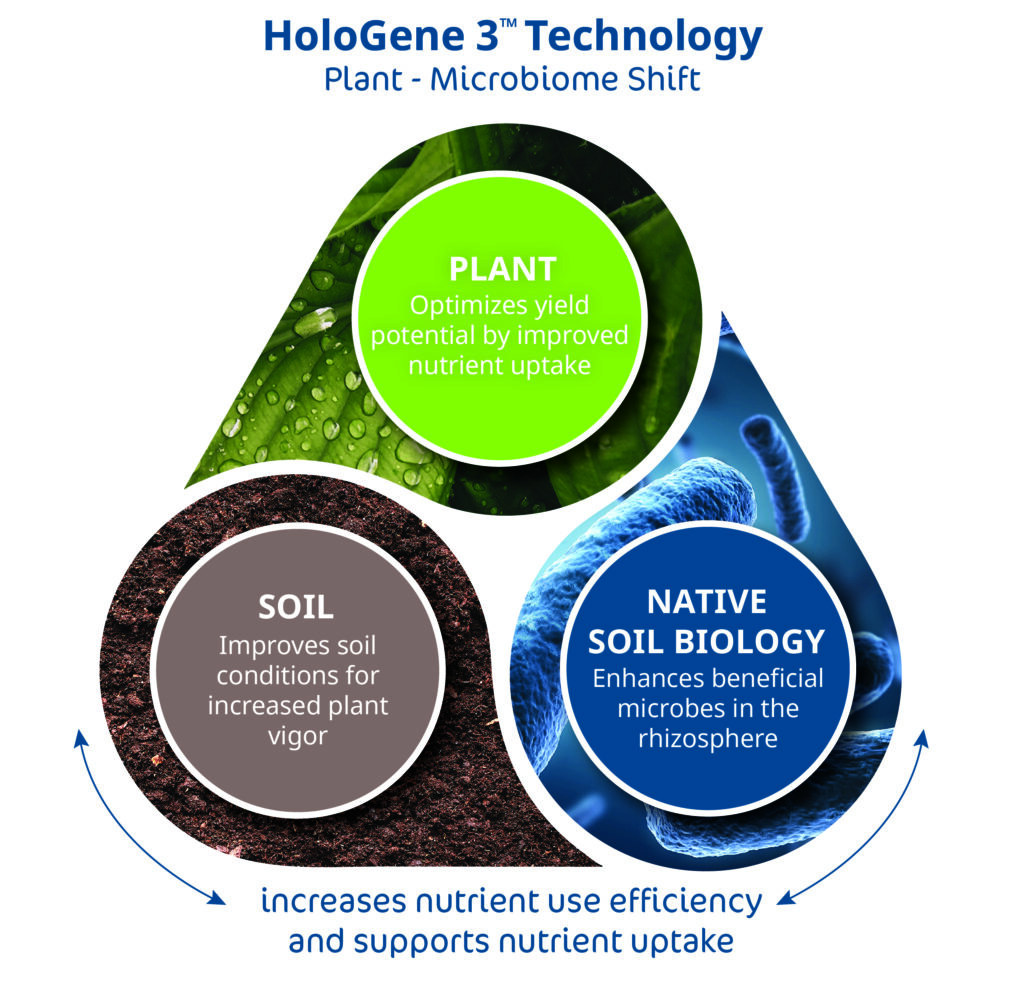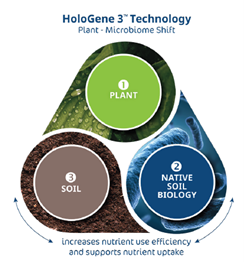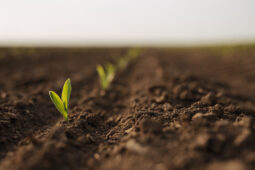
Like humans and animals, plants are comprised of their own cells and are also intricately associated with many different microorganisms. The hologenome theory, which is an evolutionary concept that considers this partnership to be a single unit, provides a framework for supporting plants’ natural processes and impacting their resistance to certain environmental factors. This concept offers the opportunity to benefit crops without genetic modification. In turn, farmers can maximize their potential for success, by leveraging this framework to improve soil nutrient conditions for better yield, which may contribute to increased profit.
Making Sense of the Microbiome
A plant’s microbiome may comprise both helpful and potentially harmful microorganisms. Those that benefit the plant are considered symbiotic, while those that cause disease are referred to as pathogenic.
More than 30 years ago, Lynne Margulis coined the term holobiont to describe the partnership between a host and its microbiome. It is derived from the Greek word “holos,” meaning whole. Microbes in the microbiome bring additional genetic diversity to the host. The combined genotypes of the host and its microbiome are referred to collectively as the hologenome. The holobiont then expresses traits, or phenotypes, which arise from the combined genetic diversity of host and microbiome.
Helping Plants Overcome Yield-Limiting Factors with the Hologenome vs. Soil Inoculation
Technologies like nitrogen fixers, phosphorus and zinc solubilizers, or bacteria that produce enzymes and metabolites, have been introduced into agriculture as a way to better manage crops and overcome yield limiting factors. All of these technologies rely on a soil inoculation approach of introducing a population of beneficial, but non-native, organisms into the microbiome of the soil to enhance growth plant growth. This approach has its limitations. Inoculating the soil relies on a particular type of bacteria, which may or may not succeed in a non-native environment, given a particular crop type, soil conditions, or geography. This approach is typically an expensive input for farmers, as well.
As an alternative to soil inoculation, a lower dose of carefully selected microorganisms may be applied to the growing crop in a targeted fashion, augmenting its hologenome. This supports the expression of natural traits by the new holobiont, which protects the soil with native beneficial microbes. Plants have evolved natural processes for better interacting with the soil microorganisms to gain access to the best possible microbial partners available in their environment, and the expression of these processes can vary based on the composition of the plant’s hologenome.
How the BiOWiSH® HoloGene 3™ Technology Works
Featuring our proprietary HoloGene 3™ technology, BiOWiSH® endophytic Bacillus deliver soil nutrients to crops through the rhizophagy cycle creating a symbiotic relationship between the plant and soil microbes. The result is a high-performance partnership that works in three different ways.

-
PLANT BASED MODE OF ACTION
BiOWiSH® microbes can optimize yield potential by improved nutrient uptake through the rhizophagy cycle. This entails the microbes being taken into root cells where they are stripped of nutrients, then deposited back into the soil where the cycle begins again within other roots. -
MICROBIOME BASED MODE OF ACTION
BiOWiSH® helps promote the release of root exudates (sugars and enzymes) that enhance beneficial microbes in the rhizosphere. - SOIL BASED MODE OF ACTION
The BiOWiSH® Bacillus stimulate native microbes, which mobilize bound nutrients. This improves soil conditions for increased plant vigor.
By populating the plant’s microbiome with organisms that enhance beneficial microbes in the rhizosphere, farmers enable their crop to make the most of what it has available in its environment. BiOWiSH® optimizes soil conditions for greater root mass, which in turn increases nutrient use efficiency and supports nutrient uptake.
Putting the Hologenome Concept to Use
With a greater understanding of the hologenome concept and using products that that maximize the hologenome, growers can set themselves up for success. Farmers who choose fertilizer enhanced with BiOWiSH® may optimize their yield potential by improved nutrient uptake, and therefore, get the most out of their fertilizer investment.
Learn more about the positive impact that BiOWiSH® can make in your farming operation by or visit biowishtechnologies.com/product/crop-liquid/ for more information.





